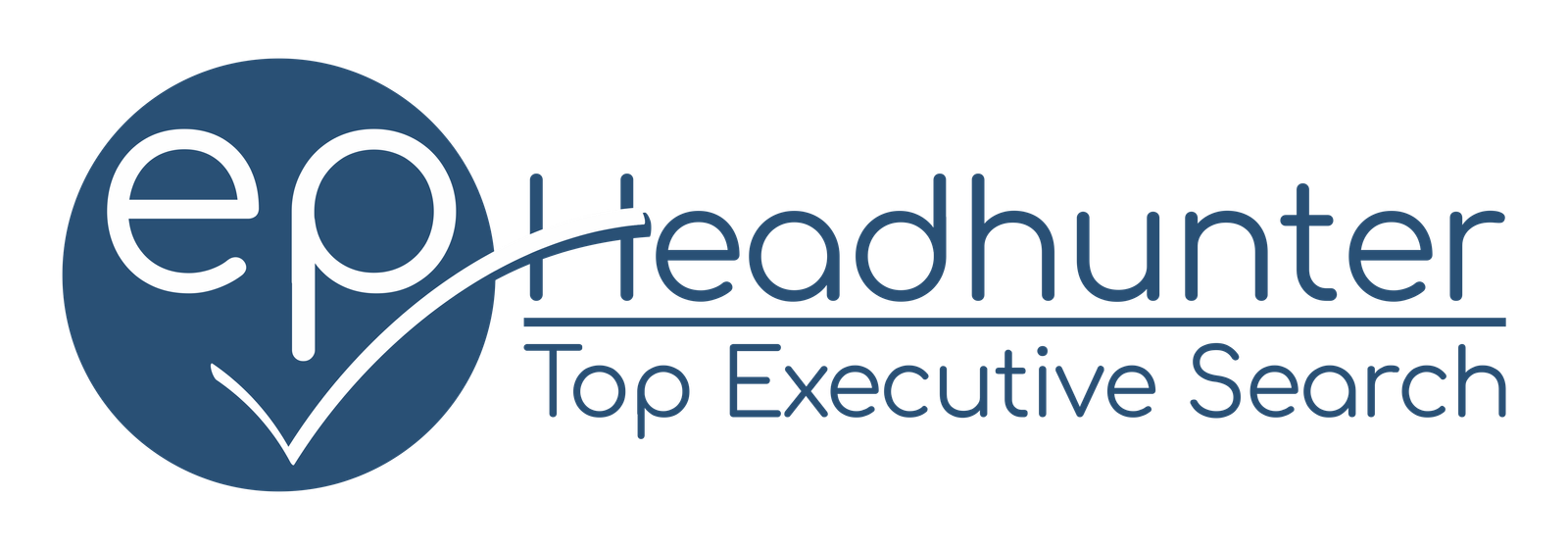Have you ever wondered why some candidates stand out in high-level interviews while others struggle to make an impact? In today’s competitive global marketplace, mastering the art of interviewing goes beyond just answering questions. It’s about understanding cultural nuances, showcasing language fluency, and demonstrating strategic thinking.
For professionals in Colombia aiming to excel on the international stage, preparation is key. High-level interviews often involve intense scrutiny and a focus on how a candidate aligns with the future of a company. This requires not only technical expertise but also cultural intelligence and a clear understanding of global trends.
In this article, we’ll explore the essential skills and strategies needed to navigate these challenges successfully. Whether you’re preparing for your next big opportunity or looking to refine your approach, these insights will empower you to perform at the highest level.
Key Takeaways
- High-level interviews require cultural intelligence and language fluency.
- Preparation involves understanding the company’s future goals.
- Strategic thinking is crucial for standing out as a candidate.
- Cultural nuances play a significant role in global interviews.
- Language skills can enhance your credibility and confidence.
Understanding the Global Executive Interview Landscape
In today’s interconnected world, understanding the dynamics of high-level recruitment is more critical than ever. Companies are no longer confined by borders, and the criteria for leadership roles are evolving to reflect this global shift. For professionals in Colombia, this means adapting to both local and international expectations.

Colombia’s market dynamics play a significant role in shaping recruitment strategies. With a growing emphasis on cultural intelligence, companies are seeking leaders who can navigate diverse environments. According to recent studies, organizations with diverse leadership teams are 35% more likely to outperform their peers in profitability.
Exploring Market Dynamics in Colombia
Colombia’s unique economic and cultural landscape influences how companies approach hiring. The country’s focus on innovation and sustainability has led to a demand for leaders who can drive strategic growth. Local professionals must align their skills with these evolving expectations to stand out in competitive job markets.
Navigating International Recruitment Trends
Globally, recruitment trends are shifting toward a more holistic approach. Companies are prioritizing candidates who demonstrate not only technical expertise but also emotional intelligence and adaptability. Research shows that 65% of executives consider adaptability essential for success in dynamic business environments.
To thrive in this landscape, professionals must focus on developing key skills. Below is a summary of the most sought-after competencies for leadership roles:
| Skill | Importance |
|---|---|
| Strategic Thinking | Critical for driving long-term success |
| Cultural Intelligence | Essential for managing diverse teams |
| Communication | Vital for building trust and clarity |
| Adaptability | Key for navigating uncertainty |
Preparation is the cornerstone of success in high-level recruitment. By understanding global trends and aligning their skills with market demands, professionals in Colombia can position themselves as strong candidates for leadership roles.
Recognizing Cultural Nuances in Global Interviews
Cultural awareness can make or break your chances in a high-stakes interview. In today’s globalized world, understanding cultural differences is not just a nice-to-have skill—it’s a necessity. Companies are increasingly prioritizing candidates who demonstrate intercultural fluency and the ability to adapt to diverse environments.

For professionals in Colombia, this means going beyond technical expertise. It’s about understanding how cultural norms shape communication, decision-making, and leadership styles. A candidate’s position in the hiring process often hinges on their cultural intelligence.
Intercultural Fluency and Corporate Etiquette
Intercultural fluency is the ability to navigate different cultural contexts with ease. This skill is particularly important in global interviews, where corporate etiquette varies widely. For example, in countries like Japan, formal communication and hierarchical respect are highly valued. In contrast, the Netherlands prefers a more casual and direct approach.
Understanding these differences can help you tailor your responses and behavior. Research shows that candidates who adapt to cultural norms are 40% more likely to succeed in international interviews. This preparation not only boosts your confidence but also enhances your credibility.
Decoding Behavioral Expectations in Different Cultures
Behavioral expectations can vary significantly across cultures. In the U.S., direct communication and assertiveness are often seen as strengths. However, in many Asian cultures, indirect communication and humility are more valued. Misinterpreting these cues can lead to misunderstandings and missed opportunities.
For instance, silence during an interview can be interpreted differently. In the U.S., it may be seen as discomfort, while in Japan, it’s often a sign of thoughtful consideration. Being aware of these nuances can help you navigate interviews more effectively.
Here’s a breakdown of key cultural differences in corporate settings:
| Country | Communication Style | Preferred Behavior |
|---|---|---|
| United States | Direct | Assertiveness, initiative |
| Japan | Indirect | Formality, respect for hierarchy |
| Netherlands | Casual | Openness, collaboration |
Mastering these cultural nuances can significantly impact your career trajectory. By leveraging information gathered during pre-interview research, you can position yourself as a strong candidate who understands the global landscape.
Pre-Interview Preparation: Research and Strategy
Thorough research is the foundation of a confident and impactful interview performance. A structured approach to preparation can significantly enhance your ability to stand out in competitive settings. By gaining a deep understanding of the company, its industry, and the interview panel, you can tailor your responses to align with their expectations.

Conducting In-Depth Company and Industry Research
Start by analyzing the company’s mission, values, and recent achievements. This insight helps you demonstrate alignment with their goals. Additionally, research industry trends to showcase your awareness of broader challenges and opportunities. According to recent studies, 85% of hiring managers appreciate candidates who have done their homework.
Gathering Information on the Interview Panel
Understanding the backgrounds and roles of the interviewers can provide valuable context. Look for shared connections or interests that can help build rapport. This step not only boosts your confidence but also allows you to anticipate the types of questions they might ask.
Understanding Organizational Structures and Values
Every organization has a unique culture and structure. Researching these aspects can help you tailor your responses to reflect their priorities. For example, if the company values innovation, highlight your experience in driving creative solutions. This alignment can make a lasting impression during the interview process.
By following these steps, you can approach your next interview with confidence and clarity. Preparation is not just about answering questions—it’s about demonstrating your fit within the organization’s vision and culture.
Mastering Communication and Fluency in English
Effective communication is the cornerstone of success in high-stakes professional settings. For candidates aiming to excel in global roles, language fluency and clarity are non-negotiable. They not only convey professionalism but also demonstrate a strong cultural fit within diverse teams.

Exceptional communication skills can influence an interviewer’s decision and set you apart from the competition. Whether it’s adopting the right language patterns or practicing active listening, these strategies can elevate your profile significantly.
Adopting the Right Language Patterns
Using professional and concise language is essential in high-level discussions. Avoid jargon and focus on clarity to ensure your message resonates. For example, phrases like “I led a team to achieve a 20% increase in efficiency” demonstrate both leadership and results.
Research shows that candidates who tailor their language to the executive level are 50% more likely to succeed. This includes using formal tones, avoiding slang, and structuring responses logically.
Practicing Active Listening and Clear Articulation
Active listening is a skill that builds trust and understanding. It involves paying attention to the interviewer’s questions, nodding, and responding thoughtfully. This approach not only shows respect but also ensures your answers are relevant.
Clear articulation is equally important. Practice speaking slowly and enunciating words to avoid misunderstandings. Tools like mock interviews can help refine this skill, boosting your confidence by up to 40%.
- Clear communication enhances your credibility and professionalism.
- Active listening demonstrates respect and understanding.
- Language fluency is a key factor in achieving a strong cultural fit.
- Practicing articulation ensures your message is clear and impactful.
By mastering these techniques, you can position yourself as a confident and capable candidate, ready to thrive in any professional setting.
Developing a Compelling Leadership Narrative
Crafting a leadership narrative that resonates is essential for making a lasting impression. In professional settings, your story is more than just a summary of your career—it’s a strategic tool that showcases your value as a leader. By framing your experiences effectively, you can demonstrate how your skills and vision align with an organization’s goals.
Showcasing Your Professional Journey
Your professional journey is the foundation of your leadership narrative. Start by identifying key milestones that highlight your growth and achievements. For example, discuss a time when you led a team to overcome a significant challenge. Use the STAR Method—Situation, Task, Action, Result—to structure your response and make it memorable.
Focus on moments that demonstrate your ability to inspire and drive results. These stories not only illustrate your leadership capabilities but also show how you can add value to a new role. By sharing authentic experiences, you create a connection with your audience.
Framing Success Stories to Highlight Expertise
Success stories are powerful tools for showcasing your expertise. When framing these stories, emphasize the impact of your actions. For instance, if you implemented a strategy that improved efficiency, explain how it benefited the organization. This approach highlights your problem-solving skills and strategic thinking.
Align your stories with the organization’s values and goals. If the company prioritizes innovation, share examples of how you’ve driven creative solutions. This alignment demonstrates your fit within their culture and vision.
Here are actionable steps to prepare your leadership narrative:
- Identify key achievements that showcase your leadership skills.
- Use the STAR Method to structure your stories for clarity and impact.
- Align your experiences with the organization’s values and goals.
- Practice delivering your narrative to ensure confidence and fluency.
By mastering the art of storytelling, you can create a leadership narrative that leaves a lasting impression. This approach not only highlights your expertise but also demonstrates your ability to lead with purpose and vision.
Executive Interview Prep for Global Roles: Core Strategies
Preparing for high-stakes discussions requires more than just technical knowledge—it demands a strategic mindset. To succeed, candidates must integrate cultural intelligence and align their experience with global standards. This approach ensures you stand out in competitive settings.
Strategies for Demonstrating Cultural Intelligence
Cultural intelligence is a critical factor in global roles. It involves understanding and adapting to diverse cultural norms. Start by researching the cultural expectations of the company and its key stakeholders. This step helps you tailor your communication and behavior to align with their values.
Emotional intelligence (EQ) is equally important. Hiring managers prioritize candidates who balance confidence with humility. Showcase your ability to navigate complex situations and influence senior stakeholders. This expertise demonstrates your readiness for leadership in diverse environments.
Aligning Your Experience with Global Standards
Global roles require a clear alignment between your experience and international expectations. Highlight achievements that demonstrate strategic thinking and adaptability. For example, discuss a time when you led a team to overcome a challenge in a multicultural setting.
Set clear goals for your preparation. Identify the skills and competencies the company values most. Use this information to craft responses that highlight your fit within their vision. This approach ensures your answers resonate with the interview panel.
Manage your time effectively during preparation. Focus on key areas such as industry trends, company values, and cultural nuances. This structured step maximizes your readiness and boosts your confidence.
By integrating these strategies, you can position yourself as a strong candidate for global roles. Preparation is not just about answering questions—it’s about demonstrating your ability to lead with purpose and vision.
Answering Critical Interview Questions with Confidence
Confidence in addressing tough questions is a skill that distinguishes top candidates. In high-stakes discussions, your ability to provide clear and thoughtful answers can leave a lasting impression. Preparation is key to ensuring your responses reflect both your expertise and strategic thinking.
We’ll explore techniques to help you formulate responses that showcase your strengths. By mastering these strategies, you can navigate even the most challenging questions with ease.
Formulating Responses for Common Executive Questions
Understanding why certain questions are asked is the first step to crafting effective answers. Common questions often focus on leadership, problem-solving, and management skills. For example, “Tell me about a time you faced a significant challenge” is designed to assess your ability to handle adversity.
Experts recommend using the PAR technique—Problem, Action, Result—to structure your responses. This approach ensures your answers are concise and impactful. Always quantify your results to demonstrate the value of your actions.
Using Storytelling to Leave a Lasting Impression
Storytelling is a powerful tool for making your responses memorable. Share specific examples that highlight your leadership and problem-solving abilities. For instance, describe a situation where you successfully managed a team to overcome a challenge.
Focus on the positive outcomes of your actions. This not only showcases your skills but also aligns with the company’s values. Practice delivering these stories to ensure clarity and confidence.
Here are actionable tips to refine your responses:
- Prepare for at least ten common questions to boost your readiness.
- Keep your answers under 90 seconds to maintain the interviewer’s attention.
- Use metrics to illustrate your achievements and dedication.
- Practice in mock interviews to improve your performance by over 40%.
By integrating these strategies, you can approach critical questions with confidence. Preparation and practice are the cornerstones of leaving a positive impression in any professional setting.
Leveraging Success Stories and Real-World Examples
Success stories are more than just anecdotes—they’re powerful tools that can elevate your professional narrative. In high-stakes discussions, real-world examples help demonstrate your expertise and confidence in a way that resonates with interviewers. By sharing vivid details, you can bridge the gap between theory and practice, making your responses memorable and impactful.
Crafting Memorable Anecdotes from Past Experiences
When preparing for an executive interview question, it’s essential to select experiences that highlight your strengths. Start by identifying key moments where you solved a problem, led a team, or achieved significant results. Use the STAR method—Situation, Task, Action, Result—to structure your story for clarity and impact.
For example, if you’re asked about a challenging project, describe the situation, your role, the actions you took, and the measurable outcomes. This approach not only showcases your skills but also demonstrates your ability to think strategically under pressure.
Here’s how to refine your anecdotes:
- Focus on experiences that align with the company’s values and goals.
- Use specific details to make your story engaging and relatable.
- Practice delivering your anecdotes to ensure they flow naturally during the job interview.
By integrating these strategies, you can turn your past experiences into compelling narratives that leave a lasting impression. Success stories are not just about what you’ve done—they’re about how you’ve made a difference.
Bringing It All Together for a Lasting Impression
Standing out in high-stakes discussions is about blending preparation with authenticity. We’ve explored how strategic research, cultural intelligence, and effective communication are essential for a successful executive interview. These elements work together to create a cohesive approach that leaves a lasting impression.
Harmonizing these strategies ensures you’re not just answering questions but showcasing your value. From understanding cultural nuances to crafting compelling narratives, every step builds your confidence and credibility. This holistic approach aligns your skills with the company’s vision and goals.
To achieve this, focus on actionable steps: research the company thoroughly, practice clear communication, and adapt to cultural expectations. These efforts demonstrate your readiness and commitment. A successful executive interview is within reach when you integrate these strategies seamlessly. Additionally, consider honing your understanding of how to craft an international resume, as this will be an essential tool in presenting your qualifications effectively across different markets. Tailor your resume to reflect not only your skills and experiences but also the cultural nuances relevant to the position. By showcasing your adaptability and cultural awareness, you position yourself as a strong candidate in a competitive global landscape.
We’re here to guide you on this journey. By adopting a well-prepared and thoughtful approach, you can navigate professional dialogues with confidence and purpose. Start today, and make every interaction count.
